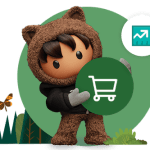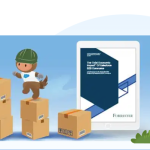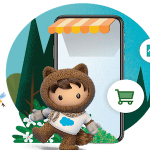Business-to-business (B2B) e-commerce tips and tactics are on the rise as the business landscape is being radically reshaped. Consumers have changed the way that they do business too. Considering, the closing of brick-and-mortar shops sent new waves of shoppers online.
The 24/7 digital realm is providing them with a wealth of exciting new experiences and conveniences! And for most, there’s no going back to a less connected world.
Today’s B2B buyer is ready for you now
Perhaps the only business model that isn’t being swept up by the digital tide is B2B. Today’s B2B buyer is younger, cannier, and more plugged-in than ever before. They use a wealth of online resources when deciding on vendors and use online communities for recommendations.
The buttoned-up, backroom B2B buyer has disappeared like cigar smoke and lavish lunches on the company card. In their place stands a digitally savvy millennial, mobile phone in hand — and you have 30 seconds to impress them.
Today’s B2B e-commerce buyer expects the same customer experience as their B2C counterparts, and anything less is likely to send them packing.
According to the Transforming the B2B Sales Function, nearly 70% of business buyers say they expect an ‘Amazon-like’ buying experience from their business vendors. The bar for customer engagement is now incredibly high, and B2B businesses need to evolve to keep up.
The top 5 B2B e-commerce tips for boosting global sales
1. Make it easy for your clients
Time is a valuable commodity. No one wants to fritter away their precious moments chatting to a service rep or salesperson for something that they could handle themselves. According to a McKinsey report, 76% of B2B buyers say that speaking to a salesperson is helpful when they’re researching a product or service, but only 15% want to speak to a rep when re-ordering.
Offering self-service options for routine processes not only makes the customer happy but also enables sales teams to concentrate on more meaningful engagement.
2. Engage with your customer
B2C has raised the ceiling when it comes to personalised service and seamless customer journeys. Now, B2B needs to follow suit. Salesforce’s State of the Connected Customer report reveals that 72% of business buyers expect vendors to personalise engagement, and 75% say that connected processes are very important to winning their business.
3. Sell with insights
In the old days, sales teams fought over the most promising leads. And the ones who lost resorted to cold calling. But today’s reps are far more empowered, and no longer have to wait for someone to hand them the ‘Glengarry leads’.
B2B companies can now use CRM systems to provide deep customer insights, enabling them to address a buyer’s pain points quickly and easily. This is especially important at a time when 78% of business buyers expect salespeople to act as advisors with knowledge of their specific needs.
4. Implement an omnichannel strategy
Many B2B organisations are using multichannel engagement, but have these channels been integrated to provide a seamless customer journey? If not, then chances are they’re still operating in a world of silos, dead ends, and dissatisfied customers. Today’s B2B buyer expects an omnichannel experience. In fact, they demand it. But our report reveals a startling truth. While 75% of business buyers expect vendors to have connected processes, less than 50% of the surveyed companies are meeting best practices for people, process, technology, and culture.
5. Leverage technology to drive innovation
The easiest way to initiate change is to integrate new technologies. New technologies can improve B2B e-commerce by uniting legacy systems and helping overcome obstacles. It can also help B2B companies better connect with their buyers. Innovation is especially important to business buyers, as their purchasing decisions affect their own bottom line.
As revealed in the State of the Connected Customer, 70% of business buyers are willing to pay more for differentiated products, and 62% will pay more for products that are first to market.
Forward-thinking solutions for B2B
It’s clear that B2B organisations are at a fork in the road. Luckily, it’s easy to see which path their customers have chosen – so they need to follow them. Salesforce offers a range of innovative products to help improve B2B e-commerce, including Commerce Cloud and Pardot, an intelligent marketing tool for today’s B2B world.
To see more B2B e-commerce tips and see how omnichannel experiences can drive growth, check out the Forrester report, B2B Embraces its Omnichannel Commerce Future.




















